Crime
Italy court weighs handover in EU Parliament corruption case
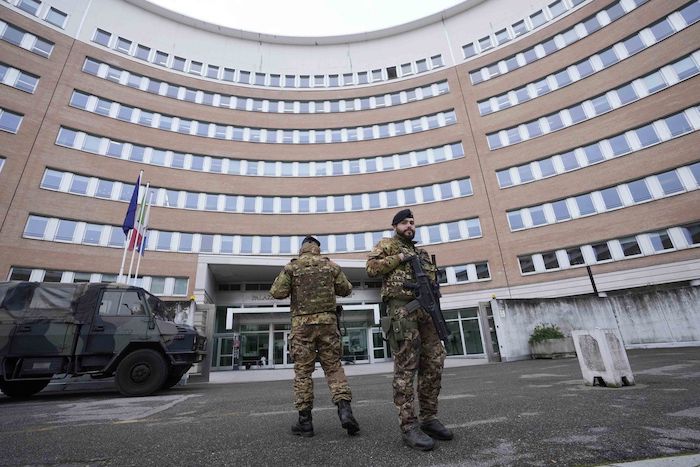
By Colleen Barry And Lorne Cook in Brescia
BRESCIA, Italy (AP) — An Italian court on Monday was deciding whether to hand over to Belgium a suspect in a big corruption scandal at the European Parliament, in which Belgian prosecutors suspect the wife and daughter of a former lawmaker of being part of a criminal gang trying to influence EU legislators on behalf of Qatar and Morocco.
According to arrest warrants seen Monday by The Associated Press, former EU lawmaker Pier Antonio Panzeri and three other suspects were charged on Dec. 9 with corruption, participation in a criminal group and money laundering. Belgian prosecutors suspect that they “were paid large sums of money or offered substantial gifts to influence parliament’s decisions.”
The investigation of allegations of cash and gifts for political influence corruption is one of the biggest to hit the European Parliament. Lawmakers last week suspended work on Qatar-related files and vowed to toughen lobbying laws. Qatar vehemently denies that it is involved.
According to the two European arrest warrants issued by Belgian judge Michel Claise, Panzeri is “suspected of intervening politically with members working at the European Parliament for the benefit of Qatar and Morocco, against payment.”
Panzeri’s wife, Maria Dolores Colleoni, and their daughter, Silvia Panzeri, are suspected of being “fully aware” of his activities and even to help transport “gifts” given by Morocco’s ambassador to Poland, Abderrahim Atmoun.
Prosecutors in Belgium are seeking their transfer to Belgium to face the same charges as the other four suspects, who include a former EU parliament vice president and her Italian partner. They face up to five years in prison if found guilty, according to the warrants.
A hearing was under way Monday in Brescia on whether to hand over Colleoni, while her daughter’s case will be heard separately on Tuesday. They are both under house arrest near Brescia, though Colleoni was in court on Monday. Panzeri himself is detained in Belgium.
Colleoni’s lawyer, Angelo de Riso, said handing her to Belgian authorities would violate her human rights because an Italian court has already conceded house arrest and a transfer to Belgium would land her in jail pending charges and trial.
A former vice president of the European Parliament, Eva Kaili, remains in custody in Belgium awaiting a hearing on Thursday. Her term in office was terminated by EU lawmakers last week. Her partner, Francesco Giorgi, was a parliamentary advisor.
Besides Panzeri, who leads the Fight Impunity campaign group, Niccolo Figa-Talamanca, secretary-general of the non-governmental organization No Peace Without Justice, was also charged. He has been released from prison but remains under surveillance and must wear an electronic monitoring bracelet.
Separately Monday, the former head of the Italian parliamentary committee on intelligence on Monday told reporters that a report on Qatar had been prepared and unanimously approved in August. The report has been classified and sealed, according to Adolfo Urso, now a minister in Premier Giorgia Meloni’s government. The report also includes China and Russia.
___
Cook reported from Brussels.
Crime
DEA doubtful of cartel order to stop fentanyl production
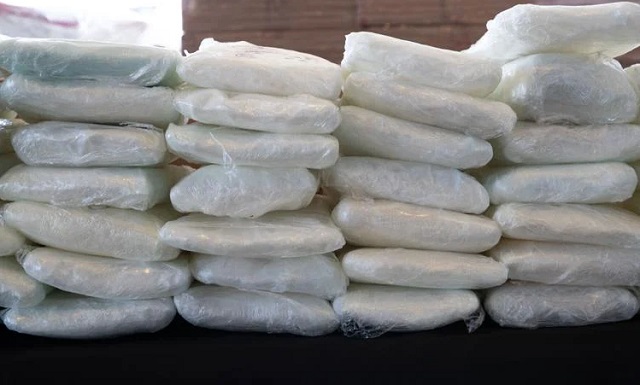
From The Center Square
DEA officials remain skeptical of reports that Mexican cartel leaders have ordered their producers to stop making fentanyl.
In early 2023, the leaders of the Sinaloa and Jalisco cartels reportedly ordered subordinates to stop the production of fentanyl. In October 2023, Los Chapitos, the group led by the four sons of imprisoned boss Joaquín “El Chapo” Guzmán, hung banners in prominent locations in Sinaloa, Sonora, and Baja California ordering the fentanyl ban.
DEA officials made it clear in the latest National Drug Threat Assessment that they are doubtful.
“The ban is probably a public relations stunt, however, or an attempt by the cartels to consolidate production among a smaller number of trusted manufacturers and punish others,” according to the report.
Furthermore, DEA officials have seen no indication of a reduction in the illicit fentanyl supply.
“Throughout 2023, fentanyl was seized at the border in equal or higher quantities as in previous years, and no DEA field office reported that fentanyl is less available or more expensive, either of which would point to a decrease in the supply,” according to the report.
Illicit fentanyl killed nearly 38,000 Americans in the first six months of 2023, according to the DEA report. Synthetic opioids were involved in 74,225 deaths in 2022 – 68% of the total 111,036 deaths that year, according to the Centers for Disease Control and Prevention.
DEA officials said the cartels use precursor chemicals from China along with pill presses to press fentanyl into pills that resemble prescription medication. Cartels and street dealers also mix illicit fentanyl with other drugs including heroin and cocaine, increasing the risk of overdose or death.
The report also noted that the purity level of illicit fentanyl in the U.S. drug market has increased and the amount of fentanyl found in counterfeit prescription pills has increased, making the nation’s top drug threat even more dangerous.
Seizures of fentanyl are at record levels, according to the report. Over the past two years seizures of fentanyl powder nearly doubled. DEA seized 29,048 pounds of fentanyl in 2023. And the more than 79 million fentanyl pills seized by DEA in 2023 was almost triple what was seized in 2021.
Brett Rowland
Investigative Reporter
Addictions
British Columbia to re-criminalize hard drug use in public after massive policy failure
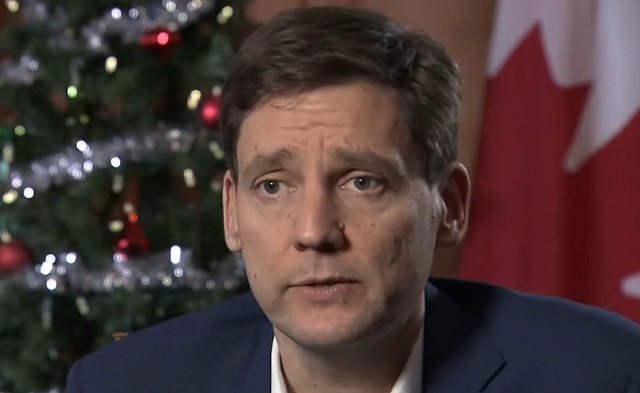
From LifeSiteNews
British Columbia premier David Eby announced that his province plans to re-criminalize hard drug use in public spaces after its decriminalization last year led to widespread social disorder.
British Columbia is asking the Trudeau government to roll back its drug decriminalization program after increased violence and continued overdoses.
On April 26, New Democratic Party (NDP) premier of British Columbia David Eby announced that he is working with Prime Minster Justin Trudeau’s federal government to re-criminalize drug use in public spaces, including inside hospitals, on transit, and in parks. British Columbia, under permission from the Trudeau government, had decriminalized such behavior in 2023.
“Keeping people safe is our highest priority,” Eby explained in a press release. “While we are caring and compassionate for those struggling with addiction, we do not accept street disorder that makes communities feel unsafe.”
“We’re taking action to make sure police have the tools they need to ensure safe and comfortable communities for everyone as we expand treatment options so people can stay alive and get better,” he continued.
Under the new regulations, police would be given the power to prevent drug use in all public places, including hospitals, restaurants, transit, parks and beaches.
However, drug use would remain legal at “a private residence or place where someone is legally sheltering, or at overdose prevention sites and drug checking locations.”
Eby’s concerns over drug use were echoed by Minister of Public Safety and Solicitor General Mike Farnworth who said, “Our communities are facing big challenges. People are dying from deadly street drugs, and we see the issues with public use and disorder on our streets.”
“As we continue to go after the gangs and organized criminals who are making and trafficking toxic drugs, we’re taking action now to make it illegal to use drugs in public spaces, and to expand access to treatment to help people who need it most,” he promised.
Beginning in early 2023, Trudeau’s federal policy, in effect, decriminalized hard drugs on a trial-run basis in British Columbia.
Under the policy, the federal government began allowing people within the province to possess up to 2.5 grams of hard drugs without criminal penalty, but selling drugs remained a crime.
While British Columbia has not yet indicated it plans to re-criminalize possession, its decision to clamp down on public drug use presents a major departure from its previous tactics of continually liberalizing its attitude toward narcotic use.
Since being implemented, the province’s drug policy has been widely criticized, especially after it was found that the province broke three different drug-related overdose records in the first month the new law was in effect.
The effects of decriminalizing hard drugs in various parts of Canada has been exposed in Aaron Gunn’s recent documentary, Canada is Dying, and in U.K. Telegraph journalist Steven Edginton’s mini-documentary, Canada’s Woke Nightmare: A Warning to the West.
Gunn says he documents the “general societal chaos and explosion of drug use in every major Canadian city.”
“Overdose deaths are up 1,000 percent in the last 10 years,” he said in his film, adding that “[e]very day in Vancouver four people are randomly attacked.”
-

 Brownstone Institute1 day ago
Brownstone Institute1 day agoThe Predictable Wastes of Covid Relief
-

 Brownstone Institute1 day ago
Brownstone Institute1 day agoBook Burning Goes Digital
-

 John Stossel18 hours ago
John Stossel18 hours agoThe Swamp Survived: Why Trump Failed to “Drain the Swamp”
-

 Alberta1 day ago
Alberta1 day agoCanadian Christian chiropractor fights ‘illegal’ $65,000 fine for refusing to wear mask
-

 Media1 day ago
Media1 day agoCBC tries to hide senior executive bonuses
-
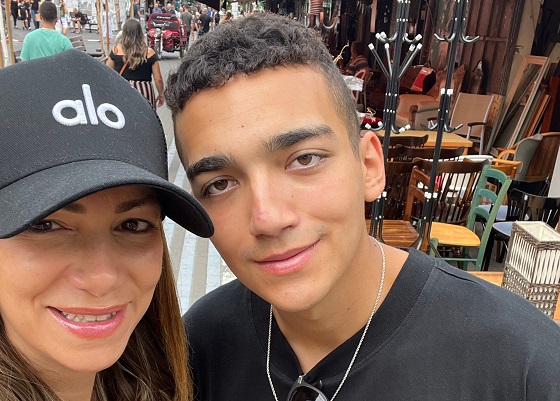
 conflict1 day ago
conflict1 day agoOver 200 Days Into War, Family Of American Hostage in Gaza Strives For Deal To Bring Son Home
-

 Energy19 hours ago
Energy19 hours agoU.S. EPA Unveils Carbon Dioxide Regulations That Could End Coal and Natural Gas Power Generation
-
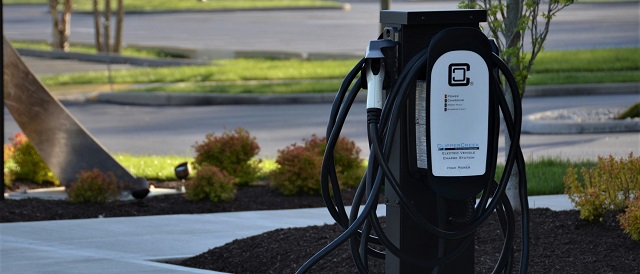
 Automotive16 hours ago
Automotive16 hours agoNew Analysis Shows Just How Bad Electric Trucks Are For Business


